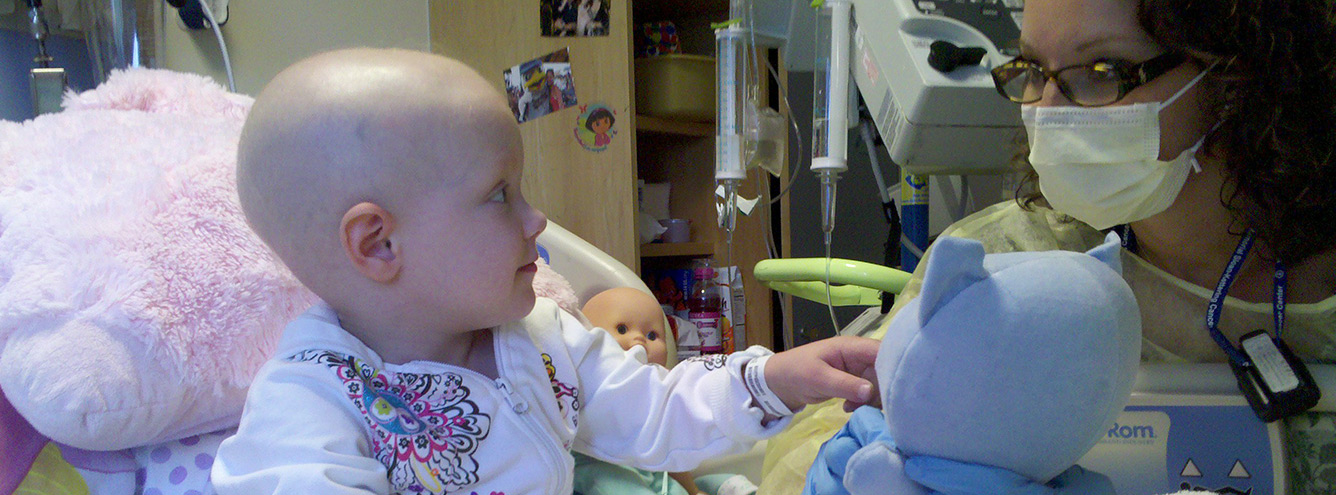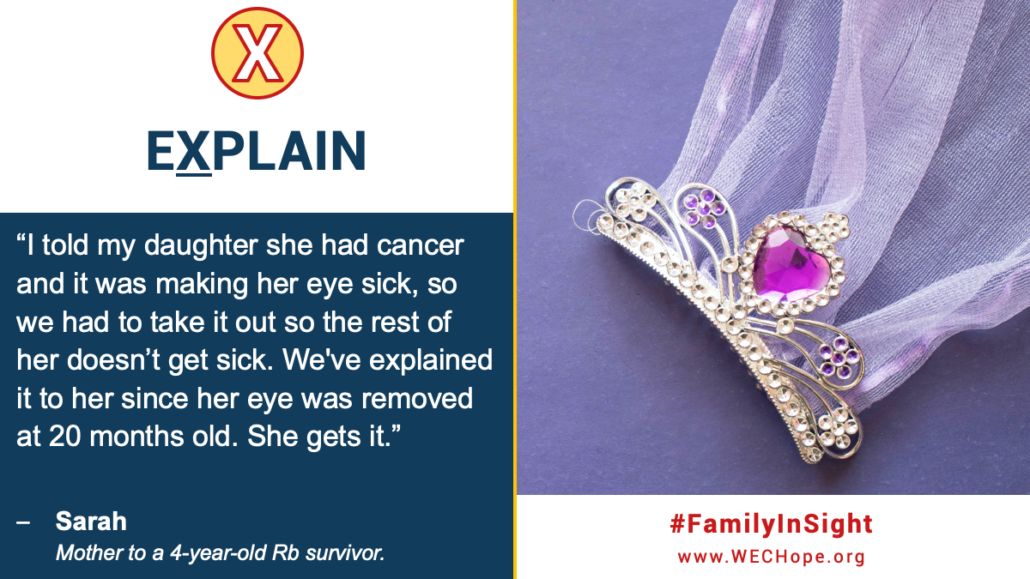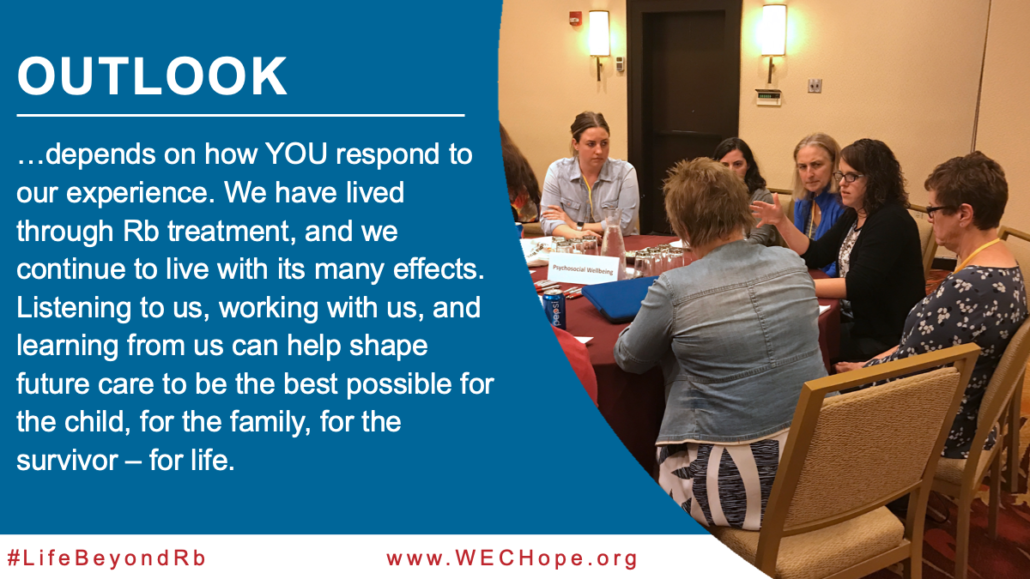2024 – #RbEarlyDiagnosis
Babies and young children with eye cancer can’t tell us their sight is changing. They need caregivers to know of and act on early retinoblastoma signs, prompt eye exams to find possible cancer, and referral with good family support to aid swift diagnosis and care. This creates the best potential to save children’s sight and life worldwide.
The #RbEarlyDiagnosis Alphabet Of Hope highlights many aspects of early detection, including signs and symptoms, challenges, and efforts globally to overcome them.
Read More
This photo features Rb Survivor, Bisrat, and his father, Samson, from Ethiopia.
2023 – #RbResearch
Retinoblastoma is the most common eye cancer in children. A complex cancer requiring specialist care, it has potentially lifelong impacts on the child and their entire family. Research focused on early diagnosis and referral, all aspects of medical and psychosocial care, and survivorship can improve the cancer experience, outcomes, and quality of life.
The #RbResearch Alphabet of Hope highlights key questions and realities for all who research this unique cancer or fund the research, who care for affected individuals, and advocate for best patient, survivor, and family care.
Read More
2022 – #RbCare
Retinoblastoma is a complex cancer afftecting very young children, often involving treatment over several years or more, intensive follow up care, and lifelong implications. The diagnosis pathway, the child’s treatment, how it is delivered, and care for the entire family, has a huge impact on their experience of the cancer, wellbeing during and after medical care, and medical experiences long into adulthood.
Our 2022 Alphabet of Hope captured some of the themes most important to families and survivors when considering medical care of the child with retinoblastoma. We have added signposts below to further information with every letter.
Read More
2021 – #MindAndBody
Life with retinoblastoma is tough! All three of our previous alphabets emphasize this very well. 2020 was an unbelievably rough year for the whole world, and continues to be so as COVID-19 remains with us. While serving the retinoblastoma community through this global pandemic, the majority of our international WE C Hope team have been, and continue to navigate significant personal challenges. Those of us living with lifelong effects of retinoblastoma are acutely aware of the need for self-care to reduce the risk of overwhelm and burnout, especially when the road is tough.
Our 2021 #AlphabetOfHope is a collection of our top tips to support mental and physical health. Each letter entry shares one practical tip, published every two weeks throughout the year. We have added signposts below to further information with every letter.
Read More
2020 – #FamilyInSight
Retinoblastoma is a family cancer – it impacts everyone from the diagnosed child, their parents and siblings, to grandparents, aunts, uncles, cousins, and close friends. Family experiences and perspectives of retinoblastoma vary widely.
We decided to capture some of them in our 2020 alphabet. The paragraph and image suggestion for each letter was contributed by an individual whose loved one was diagnosed with retinoblastoma, or who is themself a survivor.
Read More
2019 – #LifeBeyondRb
Life beyond the immediate treatment of eye cancer, and recovery from it, receives comparatively little attention. Research has well-documented the genetics of retinoblastoma, heritable risk and second cancer risk. But this has not yet translated to recognizable care for most survivors. The mental health impacts of early life treatment and retinoblastoma burden have also not been acknowledged or effectively researched.
To help give a voice to the survivor’s perspective, we dedicated the 2019 Alphabet to the experience of #LifeBeyondRb. The content was developed with participation of the international retinoblastoma survivor community, through collaborative discussion within a large and well established Facebook group, and a smaller working group.
Read More
2018 (2012) – #AlphabetOfHope
Life beyond the immediate treatment of eye cancer, and recovery from it, receives comparatively little attention. Research has well-documented the genetics of retinoblastoma, heritable risk and second cancer risk. But this has not yet translated to recognizable care for most survivors. The mental health impacts of early life treatment and retinoblastoma burden have also not been acknowledged or effectively researched.
To help give a voice to the survivor’s perspective, we dedicated the 2019 Alphabet to the experience of #LifeBeyondRb. The content was developed with participation of the international retinoblastoma survivor community, through collaborative discussion within a large and well established Facebook group, and a smaller working group.









